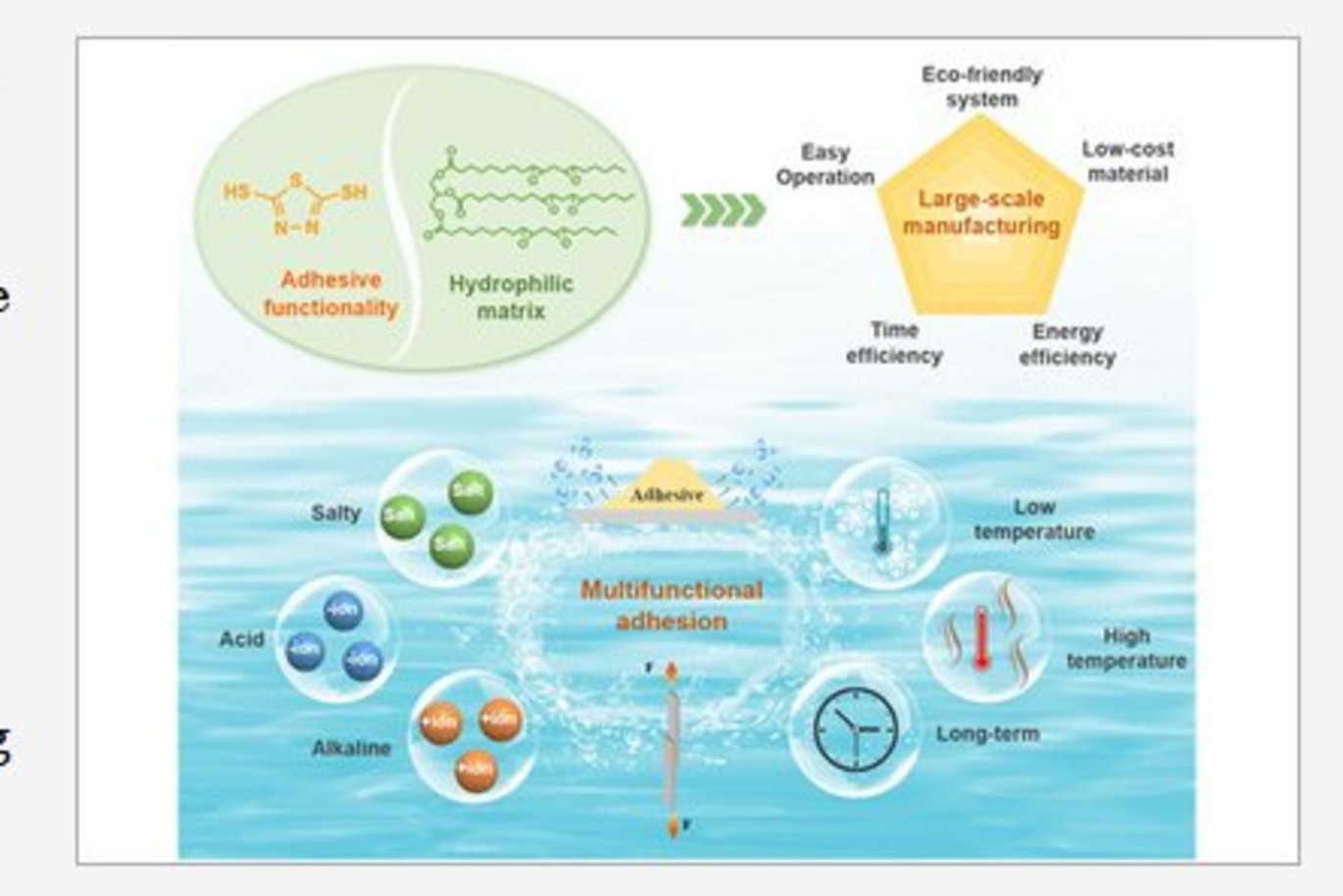Scalable Underwater Adhesives with High-Strength, Long-Term, and Harsh-Environment Adhesion Enabled by Heterocyclic Chemistry
New publication by Li F, Gu W, Gao Q, Tan Y, Li C, Sonne C et al.

Abstract:
Developing scalable and high-performance underwater adhesives is important in various biomedical and industrial applications. However, despite massive efforts, the realization of such adhesives remains a challenging task, as mainly imposed by the difficulty in balancing the interfacial and bulk properties via an efficient way. Here, we report a facile yet effective strategy to construct a novel underwater adhesive with multiple advantaged performances by virtue of heterocyclic chemistry. This adhesive is designed with the cooperation of a heterocycle-based versatile adhesive functionality and an eco-friendly hydrophilic matrix with cross-linkable sites, which allows water absorption to destroy hydration layer, diverse molecular interactions to enhance interfacial adhesion, and abundant covalent crosslinks to strengthen bulk cohesion. Such a rational design endows the adhesive with strong underwater adhesion (up to 1.16 MPa for wood and 0.36 MPa for poly(tetrafluoroethylene) (PTFE)), long-term durability (maintaining pristine strength even after 4 months), and harsh-environment stability (salt, acidic/alkaline, low/high-temperature solutions). This strategy is also generic to derive more adhesive formulas, which offers a new direction for designing the next-generation underwater adhesives with high performance and scalability for practical applications.
